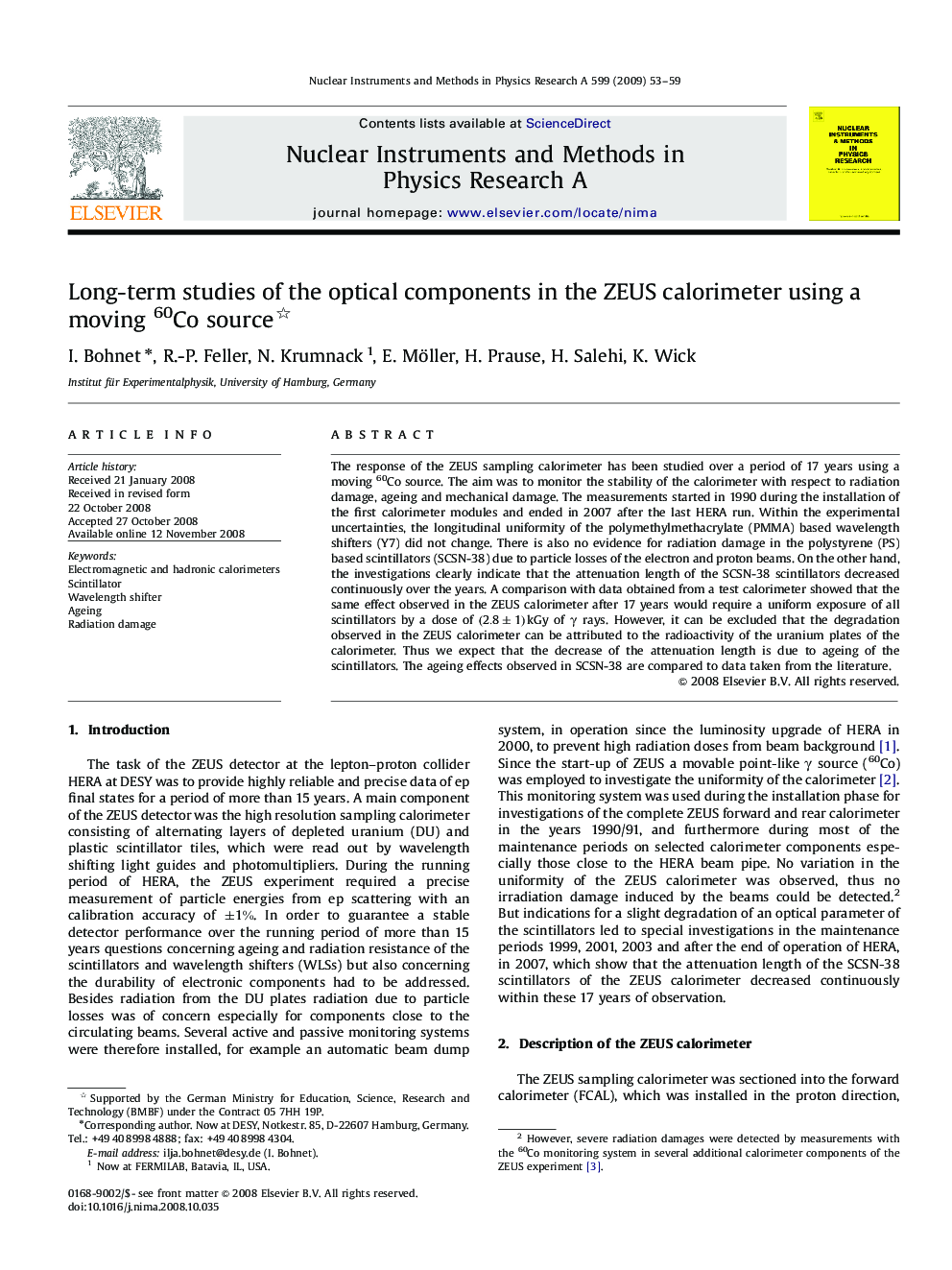| Article ID | Journal | Published Year | Pages | File Type |
|---|---|---|---|---|
| 1828977 | Nuclear Instruments and Methods in Physics Research Section A: Accelerators, Spectrometers, Detectors and Associated Equipment | 2009 | 7 Pages |
The response of the ZEUS sampling calorimeter has been studied over a period of 17 years using a moving 60Co source. The aim was to monitor the stability of the calorimeter with respect to radiation damage, ageing and mechanical damage. The measurements started in 1990 during the installation of the first calorimeter modules and ended in 2007 after the last HERA run. Within the experimental uncertainties, the longitudinal uniformity of the polymethylmethacrylate (PMMA) based wavelength shifters (Y7) did not change. There is also no evidence for radiation damage in the polystyrene (PS) based scintillators (SCSN-38) due to particle losses of the electron and proton beams. On the other hand, the investigations clearly indicate that the attenuation length of the SCSN-38 scintillators decreased continuously over the years. A comparison with data obtained from a test calorimeter showed that the same effect observed in the ZEUS calorimeter after 17 years would require a uniform exposure of all scintillators by a dose of (2.8±1)kGy of γγ rays. However, it can be excluded that the degradation observed in the ZEUS calorimeter can be attributed to the radioactivity of the uranium plates of the calorimeter. Thus we expect that the decrease of the attenuation length is due to ageing of the scintillators. The ageing effects observed in SCSN-38 are compared to data taken from the literature.
